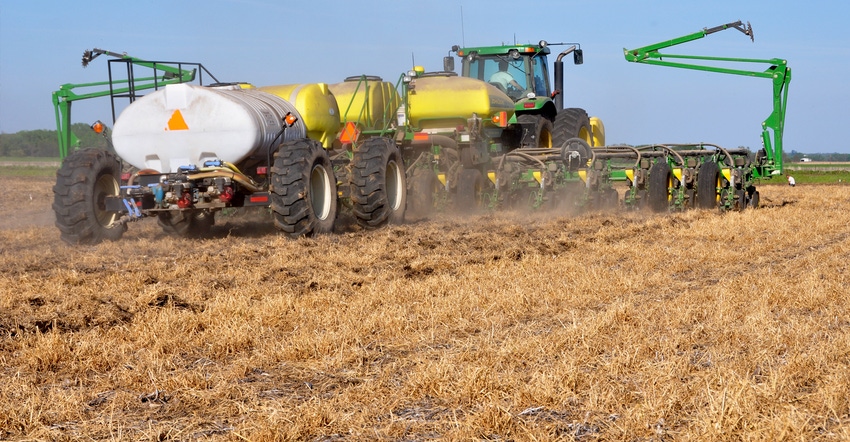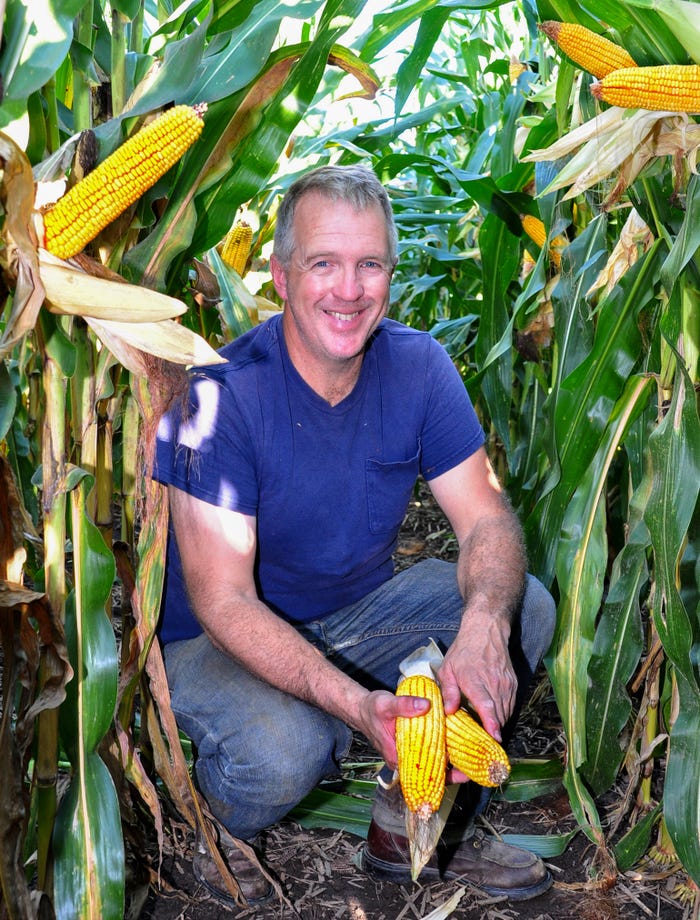
Iowa no-tiller Steve Berger will be part of the Pennsylvania No-till Alliance summer field day on July 26 and 27, near Willow Street, Pa. He’ll be the keynote speaker during the program centering around “Cover Crops: Keeping it Simple.” When he talks, people listen, says Jim Hershey, No-till Alliance president.
“The soil never lies,” says this farmer from Wellman, Iowa. “You improve your soil, and you’ll improve your crops.”
How? Elevated levels of organic matter and increased pore space enable the soil to hold more water. That makes it more resilient both in times of drought and excessive rainfall, he explains. Soil’s capacity to absorb water improves crop yields and makes it less vulnerable to erosion.
Berger’s farm is a 2,200-acre corn-soybean-swine operation in southeast Iowa. It has been a model of innovation. That’s why he received the American Soybean Association’s National Conservation Legacy Award in 2015. He also received a sustainable agriculture award from Iowa State University’s Leopold Center for Sustainable Agriculture.

THE REWARDS: Cover crops continue to help to boost Berger’s corn yields.

Some fields have been in continuous no-till for 39 years. Some fields have been in continuous cover crops for 10 years. Manure from 20,000 hogs raised each year provides much of the nutrients for his corn and soybeans and contributes to annual gains in soil organic matter content.
Lessons learned
Berger’s first no-till experience was seeding cover crop cereal rye in 1978 as a 4-H project. His first no-till corn was planted into cereal rye the following May. He and his father gradually moved to 100% no-till over the years. Although his first no-till was into a cover crop, they didn’t use cover crops continuously again until about 2000.
They noticed that in a continuous no-till corn-soybean rotation, the soil organic matter wasn’t increasing, and it was a challenge to maintain sufficient ground cover. Since 2000, they gradually added cereal rye as their cover crop, using it every year.
They occasionally tried annual ryegrass (but experienced winterkill), oats and some mixes. For Berger’s farm, cereal rye has been a good fit.
Bringing all the pieces together takes time, and you learn how to improve things each year, says this farmer. “It’s a systems approach, and it takes time to learn how to do this. It’s not hard, but it’s not something you can just jump into next year and take off either. But now is the time to get started.”
Dig deeper into Berger’s story on cover crop success and sticking with it.
About the Author(s)
You May Also Like




